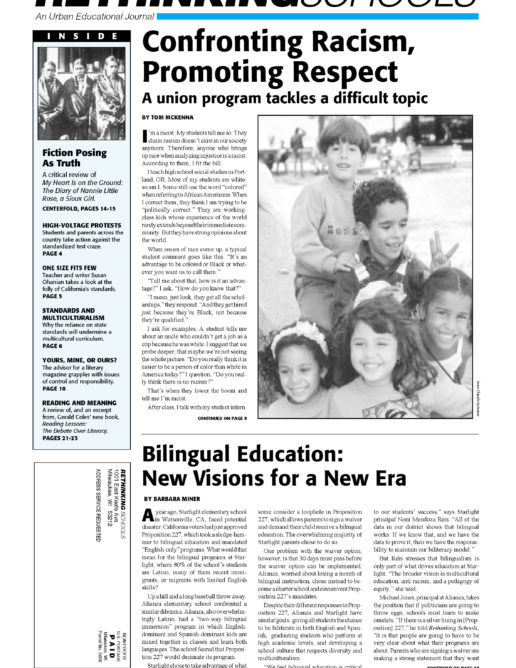Students
For public high school students involved in publishing newspapers or magazines at their schools, an understanding of court rulings on censorship is essential.
The U.S. Supreme Court decision in Tinker v. Des Moines Independent Community School District (1969) was the standard governing censorship of student publications for almost 20 years. It remains the controlling decision in some instances. Tinker established that a student may express personal opinions, “even on controversial subjects,” unless the student’s conduct “materially disrupts classwork or involves substantial disorder or invasion of the rights of others.”
The Supreme Court’s decision in Hazelwood School District v. Kulhmeier (1988) looked more specifically at student publications and allowed school officials greater opportunity to censor than under Tinker. The student newspaper in this case was part of a high school journalism class. As such, the Court decided it was sponsored by the school and legitimately subject to school control over its content and style, as long as that control served a valid educational purpose.
Under Hazelwood, a publication would likely be considered school-sponsored if it is supervised by a faculty member, if it exists to teach either the students who work on it or those who read it, or if it uses the school’s name and resources.
The Court distinguished between student publications that serve an educational purpose and those that exist as forums for student expression. Even when a publication is sponsored by the school, officials cannot censor its content if it is, “by policy or by practice,” an open forum for expression. Likewise, the content of extracurricular and underground newspapers may be censored only under the Tinker standard, even if the publication involves the use of school resources.
Courts have generally recognized that student publications may be censored if there is material that is obscene as to minors or that is libelous. Vulgar or foul language is not necessarily subject to censorship; although in a 1986 decision, Bethel v. Fraser, the Supreme Court upheld the punishment of a student who gave a lewd speech before an assembly of 14-year-old students. According to Censorship and Selection, by Henry Reichman, however, “Whether the Supreme Court will apply Fraser to student publications remains unclear.”
The Student Press Law Center encourages students and their schools to adopt guidelines that spell out school policy toward publications. Students who have questions can contact the following organizations for more information:
American Civil Liberties Union, 125 Broad St., 18th Floor, New York, NY 10004. 212-549-2500. Contact via e-mail: aclu@aclu.org; website: www.aclu.org. Or contact your local chapter.
Student Press Law Center, 1815 N. Fort Myer Dr., Suite 900, Arlington, VA 22209-1817. 703-807-1904. E-mail: splc@splc.org; website: www.splc.org.

